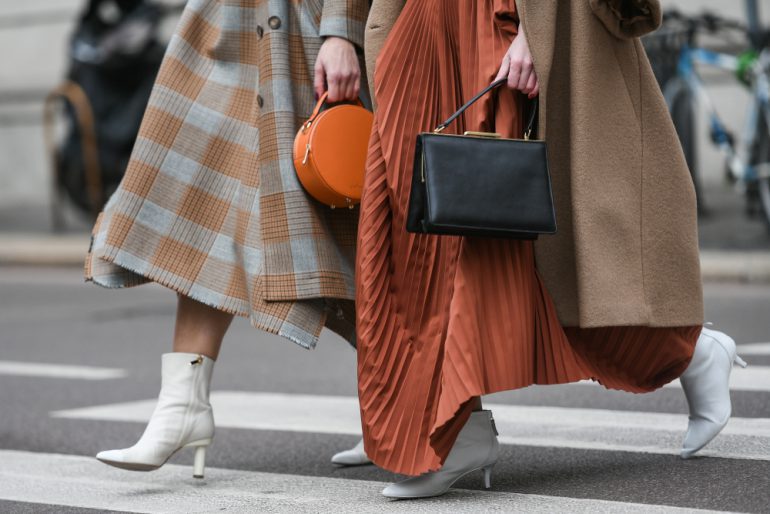High-end fashion companies are reluctant to sell their products online, and they encourage customers to visit their boutiques and “experience” the brand in person to observe the craftsmanship of their handbags and apparel.
SEE ALSO : Digital advertising in China: what’s next?
Luxury brands do not like the idea of people just browsing over pictures of their items uploaded online and purchasing them with the simple click of a mouse.
However, the accelerating global trend of digitization has changed the luxury goods industry, especially after the outbreak of COVID-19. And companies are learning that information technology can maximize their brand value.
The metaverse ― a portmanteau the prefix “meta,” meaning beyond, and “universe” ― is a term used to describe the concept of a future iteration of the internet, made up of persistent, shared, 3D virtual spaces linked into a perceived virtual universe. There, individuals can communicate, make profits, spend money and indulge in leisure time through their avatars.
Due to the COVID-19 pandemic, as luxury companies were unable to hold fashion shows, the metaverse became the best alternative.
Italian luxury brand Valentino showcased its 2020 Spring & Summer Collection in Nintendo’s “Animal Crossing: New Horizons” game last year. Game characters became fashion models wearing custom-chosen runway-inspired designs in the virtual space.
Balenciaga, a France-based luxury firm created its own video game “Afterworld: The Age of Tomorrow” and introduced its 2021 Fall & Winter Collection there. It used gaming as a platform to showcase new fashion items for one-time use.
French fashion brand Louis Vuitton collaborate with U.S. video game developer Riot Games’ “League of Legend” to launch its capsule collection two years ago. Its custom garments created for game characters sold out in less than an hour worldwide.
Last June, Gucci sold four sportswear lines for the video game characters of “Tennis Clash,” a global mobile game that was chosen as one of the top five most influential games by Google Play in 2019. The Italian brand further added a link on its official website for people to purchase actual apparel identical to that worn by their game characters.
“Global luxury brands are investing in virtual spaces as long-term projects to prepare for the future. It is their marketing strategy to make their brand familiar to future customers of generation Z, many of whom already gather in the metaverse,” an industry source said.
The metaverse is also popular in local markets too. IT giant Naver’s subsidiary Naver Z launched a mobile app of an avatar developer in August 2018. About 1.9 million users have registered for the platform as of last October and teenagers make up 80 percent of the total. Among them, 90 percent are located outside Korea.
Global firms like Gucci, Nike and Converse have launched virtual stores on the platform and customers purchase fashion items with the cyber money Zem.
Users can also utilize artificial intelligence technology to copy their face and make their avatars look identical to themselves while decorating them with apparel they purchased online.
The biggest strength of the metaverse lies in its young users, who are mostly millennials and generation Z, who grew up with video games and social media and are comfortable on the internet.
Marketing firms believe they will one day become big customers and are starting to adopt the metaverse as their promotional tool.
Luxury brands are not only finding a use for the metaverse, but also blockchain technology.
Louis Vuitton, Cartier and Prada formed a blockchain platform Aura recently with the aim of fighting counterfeiting of their luxury goods.
Louis Vuitton will soon assign a digital code to its products through Aura. Customers can learn which materials an item is made of, where it is produced and the whole process of retailing. It can also show previous owners of second-hand handbags or jewelry for sale.
Last year, the volume of business for fake luxury goods traded in online black markets reached 1,000 trillion won. High-end brands hope blockchain will deter counterfeiting.
Local IT giant Kakao also launched the digital wallet Klip, which uses a non-fungible token (NFT) system to keep gift cards that customers can use to purchase luxury goods on its platform. NFT plays the role of a certificate of authenticity as well as the gift card.
SEE ALSO : Burberry unveils designs for Honor of Kings game
Another benefit of the NFT system is it can create profits for luxury firms through commission fees from retailers for services such as assessing authenticity. The fashion companies can utilize an encoding system to pay royalties when users sell their luxury items in the second-hand market.
(Source: Korea Times)




